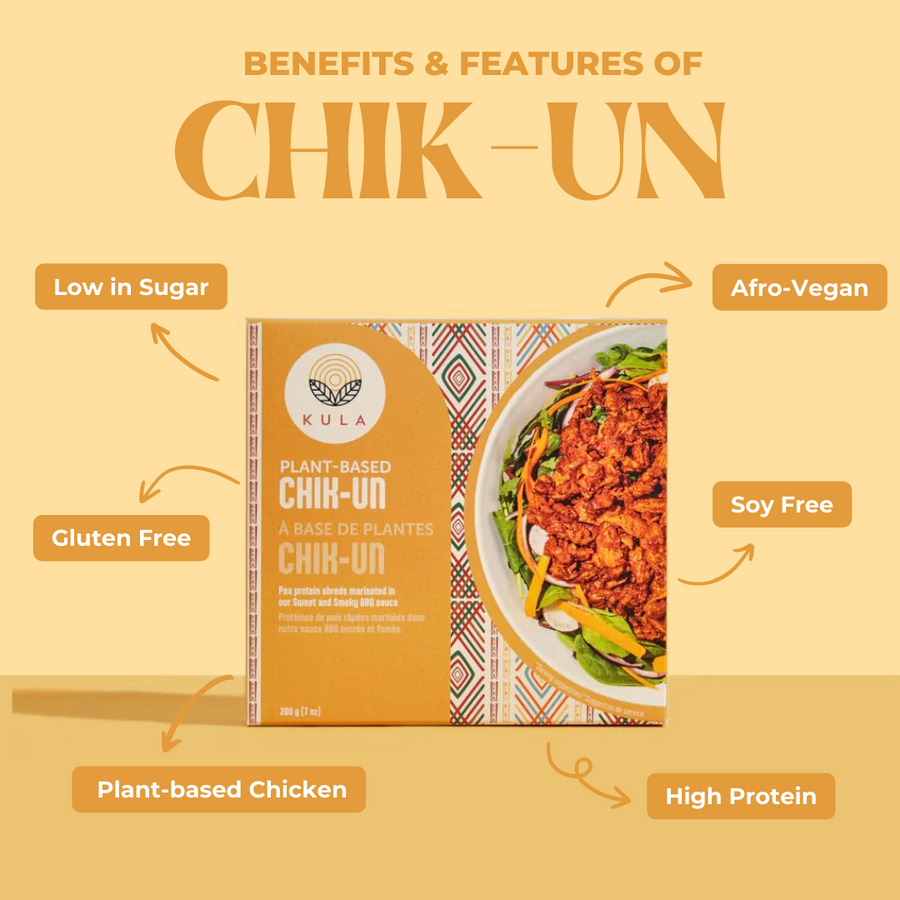Are Sugar Free Sauces Actually Healthy? A Breakdown for Plant-Based Eaters
Are Sugar Free Sauces Actually Healthy? A Breakdown for Plant-Based Eaters
Blog Article
Everything About Healthy And Balanced Food: Advantages of Embracing Plant Based Choices
The conversation surrounding plant-based diets has actually obtained significant focus over the last few years. Several people are exploring the potential health benefits, nutritional advantages, and ecological influences associated with these dietary options. As individuals become more knowledgeable about their food's impact on wellness and sustainability, inquiries develop regarding the usefulness of adopting such a way of life. What details adjustments can one anticipate, and how might these choices improve not just personal health but likewise the world's future?
Recognizing Plant-Based Diet Plans
Several individuals link plant-based diets mostly with vegetarianism or veganism, these diet plans can encompass a vast range of eating patterns that prioritize whole, minimally processed plant foods. Such diet regimens often consist of fruits, veggies, entire grains, seeds, nuts, and legumes, while getting rid of or restricting animal products. This adaptability permits individuals to customize their nutritional selections according to individual preferences and dietary demands. Some may take on a primarily plant-based diet while still sometimes consuming meat or dairy, typically referred to as a flexitarian approach. The emphasis stays on integrating more plant foods, which can cause a diverse range of flavors and meals. Recognizing these different interpretations of plant-based eating is crucial for appreciating its accessibility and appeal in contemporary food society.
Health Benefits of Plant-Based Foods
The health and wellness benefits of plant-based foods are considerable, using a nutrient thickness advantage that supports overall well-being. Research indicates that these foods can improve heart wellness and play a crucial role in reliable weight monitoring. By incorporating more plant-based options, individuals might improve their dietary choices and promote lasting wellness.
Nutrient Density Advantage
Nutrient thickness plays a vital function in the health advantages of plant-based foods, making them an engaging selection for those seeking a balanced diet plan. Plant-based foods, such as fruits, veggies, legumes, nuts, and whole grains, are often abundant in crucial vitamins, minerals, and antioxidants while being reduced in calories. This high nutrient thickness enables individuals to take in less calories while still fulfilling their dietary demands. In addition, these foods are loaded with nutritional fiber, advertising digestion wellness and assisting in weight administration. By integrating nutrient-dense plant-based alternatives, customers can boost their total wellness, support their immune systems, and minimize the threat of persistent diseases. Ultimately, the nutrient density of plant-based foods underscores their value in a health-conscious lifestyle.
Heart Health Improvement

Weight Monitoring Support
Along with promoting heart wellness, a plant-based diet can substantially help in weight management. This nutritional technique stresses whole foods such as fruits, vegetables, legumes, nuts, and entire grains, which are typically reduced in calories and greater in fiber compared to animal-based products. The high fiber web content assists increase satiation, reducing general calorie consumption. Moreover, plant-based diet plans are typically abundant in essential nutrients while low in undesirable fats, making it much easier to keep a healthy weight. Sugar Free Sauces. Research study shows that individuals that embrace a plant-based lifestyle have a tendency to have reduced body mass indexes (BMIs) and experience even more successful weight reduction contrasted to those that consume meat-heavy diet plans. As a result, accepting plant-based options is a strategic selection for effective weight management
Nutritional Worth of Plant-Based Components
Plant-based active ingredients are abundant in important nutrients, providing a varied range of vitamins, minerals, and anti-oxidants that add to overall health. A contrast of healthy protein sources reveals that while pet products are usually watched as superior, many plant-based options supply ample healthy protein and various other valuable compounds. Understanding the dietary value of these ingredients can assist people make educated nutritional selections.
Necessary Nutrients in Plants
Nutrient-rich ingredients located in plants use a varied selection of necessary nutrients that contribute substantially to overall health and wellness. These active ingredients are abundant in vitamins A, C, and K, which sustain immune feature, vision, and blood clotting, respectively. Additionally, plants offer important minerals such as magnesium, calcium, and potassium, essential for heart health, muscle feature, and bone strength. The existence of fiber in plant-based foods help food digestion and advertises a healthy and balanced gut microbiome. Anti-oxidants, discovered generously in veggies and fruits, help combat oxidative anxiety and reduce inflammation. Numerous plant foods are reduced in calories yet high in nutrients, making them an exceptional selection for those seeking to maintain a healthy and balanced weight while making sure optimal nutrient intake.

Comparing Healthy Protein Sources
Healthy protein sources vary considerably in their dietary profiles, with plant-based active ingredients supplying distinct advantages. Unlike animal healthy proteins, which usually consist of hydrogenated fats and cholesterol, plant healthy proteins often tend to be reduced in these undesirable components. Legumes, nuts, seeds, and whole grains are rich in important amino acids, fiber, vitamins, and minerals. As an example, lentils supply high healthy protein material together with significant iron and folate, while quinoa is a complete protein, using all nine essential amino acids. In addition, plant-based proteins are frequently come with by anti-oxidants and phytochemicals that support general health. The change to plant-based protein sources not only enhances nutritional consumption however also straightens with sustainable dietary practices, decreasing environmental impact and advertising long-term health and wellness benefits.
Ecological Effect of Plant-Based Consuming
As recognition of climate change grows, lots of individuals are discovering lasting dietary choices that can considerably reduce their ecological footprint. Plant-based consuming has become a substantial factor to minimizing greenhouse gas exhausts, which are largely related to animals production. The growing of fruits, vegetables, vegetables, and grains usually calls for less resources, such as water and land, contrasted to animal farming. Additionally, plant-based diets can cause lowered deforestation, as much less land is needed for grazing animals or growing animal feed. By changing towards plant-based choices, you could try these out customers can sustain biodiversity and advertise healthier ecological communities. Generally, accepting plant-based eating not only advantages personal wellness however also stands for an important action towards a fantastic read environmental sustainability and preservation initiatives.
Overcoming Common Misconceptions
While lots of individuals identify the benefits of a plant-based diet plan, a number of misconceptions usually discourage them from totally embracing this lifestyle. A common idea is that plant-based diets lack adequate protein; however, various plant resources, such as beans, nuts, and tofu, give adequate protein. Furthermore, some assume that this diet is pricey, when actually, staples like beans, rice, and seasonal vegetables can be rather affordable. One more mistaken belief is that plant-based eating is excessively restrictive, whereas it really uses a varied range of flavors and foods. Ultimately, several worry that a plant-based diet might bring about deficiencies, yet with correct planning, people can acquire all needed nutrients, including vitamins and minerals, while taking pleasure in a wide range of tasty meals.
Tips for Transitioning to a Plant-Based Way of life
Making the shift to a plant-based lifestyle can be an enhancing experience, though it typically calls for some guidance to browse the preliminary changes. Initially, people are encouraged to start slowly, integrating even more fruits, vegetables, vegetables, and entire grains right into their dishes while decreasing meat and dairy consumption. Dish preparation is essential; preparing an once a week menu can aid relieve the change and prevent final undesirable options. Exploring new dishes and cooking methods can likewise keep and enhance the experience enjoyment about plant-based consuming. In addition, joining support system or communities can offer inspiration and share useful suggestions. Lastly, staying notified regarding nutrition guarantees balanced dishes, stopping deficiencies while fostering a healthy and balanced, rewarding plant-based way of life.
Delicious Plant-Based Dish Concepts
Checking out delicious plant-based dish ideas can influence individuals to accept a much more healthy diet. One popular option is a hearty quinoa salad, featuring cherry tomatoes, cucumber, and a tangy lemon-tahini clothing. An additional fave is a mouthwatering lentil stew, loaded with carrots, celery, and fragrant natural herbs, excellent for a reassuring supper. For breakfast, over night oats made with almond milk, chia seeds, and covered with fresh berries offer a healthy begin to the day. In addition, a vibrant veggie stir-fry with tofu and a her comment is here range of colorful veggies can be a quick yet satisfying dish. Creamy avocado salute on whole-grain bread, sprinkled with seeds and seasonings, supplies a basic yet delicious snack. These meals display the variety and splendor of plant-based consuming.

Regularly Asked Questions
Can a Plant-Based Diet Offer Enough Protein?
The question of whether a plant-based diet can provide sufficient protein prevails. Various resources, consisting of legumes, nuts, seeds, and whole grains, can meet healthy protein requires efficiently, supporting a balanced and nutritious diet regimen for individuals.
Are Plant-Based Diet Plans Ideal for Children?
The suitability of plant-based diets for children depends upon cautious planning. Adequate nutrients need to be ensured, consisting of minerals, vitamins, and proteins. With appropriate support, such diets can sustain healthy and balanced development and advancement in youngsters.
Just how Do I Eat in restaurants on a Plant-Based Diet?
Eating in restaurants on a plant-based diet involves seeking restaurants with varied menus, asking for alterations, and discovering vegan-friendly choices. Planning in advance and connecting dietary choices can improve the dining experience while keeping nutritional selections.
What Prevail Irritants in Plant-Based Foods?
Usual allergens in plant-based foods consist of soy, gluten, nuts, and seeds - Plant Based Chicken. Individuals complying with a plant-based diet regimen should recognize these allergens and read tags carefully to stay clear of adverse responses and ensure risk-free usage
Can Plant-Based Diets Help With Weight Reduction?
Study suggests that taking on a plant-based diet plan might help with weight-loss due to its usually lower calorie density and greater fiber material. This mix can improve satiation, aiding individuals manage their calorie intake successfully. Several people associate plant-based diets mainly with vegetarianism or veganism, these diets can incorporate a broad array of consuming patterns that focus on entire, minimally processed plant foods. Nutrient thickness plays a necessary duty in the health benefits of plant-based foods, making them a compelling selection for those looking for a well balanced diet. Plant-based diets have actually been shown to markedly enhance heart health, as they commonly have components that sustain cardiovascular function. In enhancement to advertising heart health and wellness, a plant-based diet regimen can substantially assist in weight monitoring. A common idea is that plant-based diets do not have sufficient protein; nonetheless, countless plant sources, such as legumes, nuts, and tofu, give adequate healthy protein.
Report this page